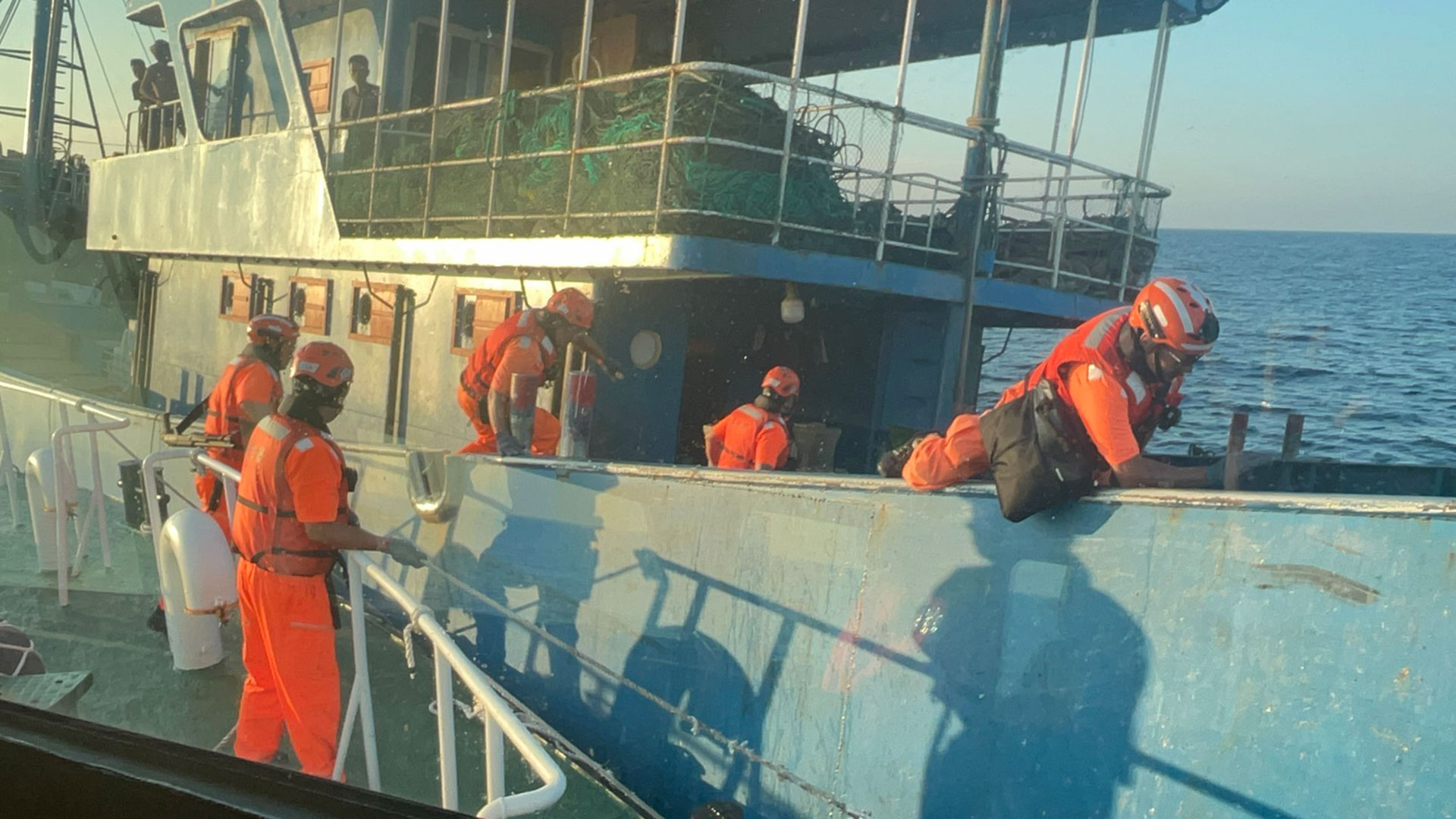Taiwan increases defensive patrols around 24 undersea cables — closely monitoring '96 blacklisted China-linked boats' with 24-hour operations
24 cables connecting Taiwan to the global internet are seen as vulnerable ‘gray zone warfare’ targets.

Taiwan has intensified patrols around the 24 undersea cables that connect it with the global internet. For the most efficient use of Taiwan’s limited coast guard resources, it is paying particular attention to “96 blacklisted China-linked boats,” reports Reuters. The strategy update is hoped to address what is seen as an increasingly popular gray-zone warfare tactic, namely the threat of sabotaging undersea connections.
For its exclusive report on the state of the subsea communications cable threat around the island, Reuters took a trip on the 100-ton Taiwan Coast Guard Ship PP-10079. We mentioned this exact vessel in our report on the severing of Chungwha Telecom’s TP3, by the Togo-registered (but Chinese-crewed) Hong Tai back in February.
PP-10079 monitored and eventually apprehended the Hong Tai after it became apparent its suspicious movements could be associated with the TP3 cable damage. The Chinese captain of Hong Tai was found guilty of deliberately severing TP3 in legal proceedings this summer.
On board the PP-10079, the Reuters reporter was told by the captain that suspected China-backed incursions “have severely undermined the peace and stability of Taiwanese society.” Of course, internet connectivity is also a key resource that is vital for government, businesses, and personal users, too.
24-hour patrols, detectors, radar
Surveillance has been ramped up to 24-hour patrols in reaction to the new gray-zone threat. Ships are aided by newly deployed technology. For example, the source notes that coast guard vessels are sent alerts when vessels come within a 1km range of TP3, travelling at a slow speed. Dozens of radar stations around the island are also scanning for suspicious ships.
Russian playbook
In August, a crew with possible links to Russia was charged with severing cables in the Baltic, using vessels carrying a third-country flag of convenience - supposedly for tax and regulation breaks. In parallel, China is thought to operate a Maritime Militia for similar gray-zone warfare activities that retain some degree of plausible deniability.
Perhaps the situation in the waters around Taiwan is even graver than in the Baltic. China is certainly a Goliath compared to Taiwan in size, population, armed forces, and resources. As well as the 96 blacklisted China-linked boats mentioned previously, there are another ~400 China-linked boats that could be converted into war vehicles, a Taiwanese security official told Reuters, drastically increasing the strain on Taiwan's coast guard.
Get Tom's Hardware's best news and in-depth reviews, straight to your inbox.
Follow Tom's Hardware on Google News, or add us as a preferred source, to get our up-to-date news, analysis, and reviews in your feeds. Make sure to click the Follow button!

Mark Tyson is a news editor at Tom's Hardware. He enjoys covering the full breadth of PC tech; from business and semiconductor design to products approaching the edge of reason.
-
dynamicreflect This shows China's stronghold in reality. They are too "strong", so they need sabotage.Reply
Bk0kSxVhNLk:36